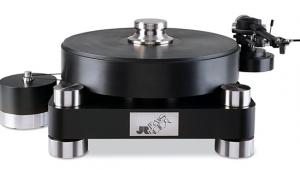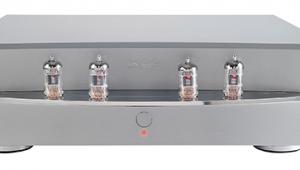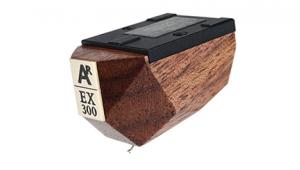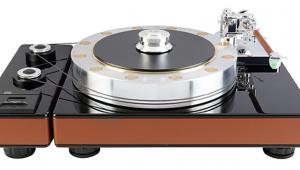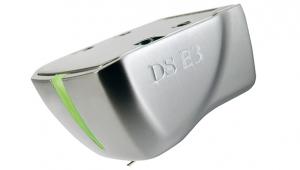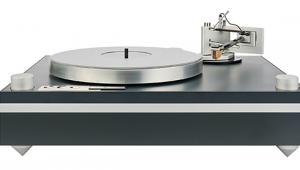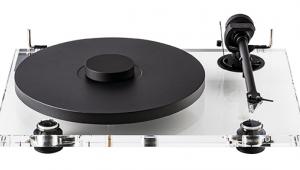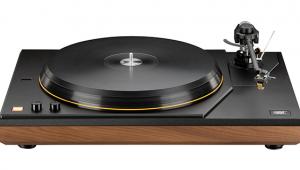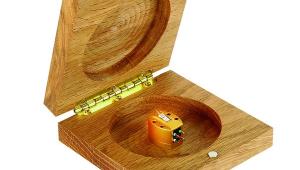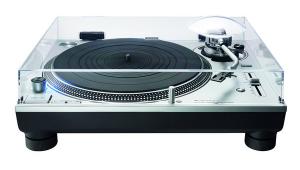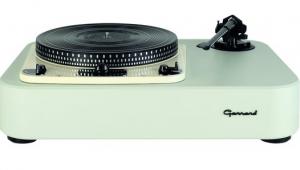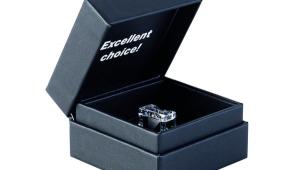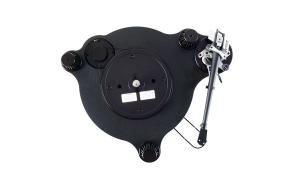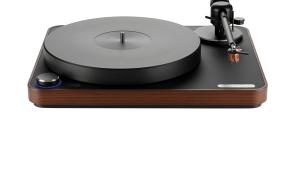Origin Live Resolution Mk 2 (£2300 Without Arm)
Like manual gearboxes, film cameras and mechanical wristwatches, turntables are intrinsically ‘retro’. Any or all might argue that, say, a manual gearbox gives a driver more control over the car, but let’s admit it: part of us simply revels in supporting the anachronistic. And no turntable I’ve seen in years better embodies a resistance to the evolution of high-end record spinners than Origin Live’s Resolution Mk 2.
Everything about this deck reminded me of some turntable of yore, as did the Encounter arm. The turntable at first seems to be of a more recent school than the vintage models it recalls, thanks to a quasi-plinthless design as favoured by Wilson Benesch, Michell and SME (for the 10). So, if any turntable can be deemed ‘modern-looking’ (and even the mighty Continuum resembles something designed by Harley Earl), then the Origin Live smacks of the 21st Century.
But study it more closely and you find the past in continual battle with the truly modern. When I see a drive belt not moulded as a single ring, but is instead a bonded loop, I think of the all-but-forgotten Oak. I’m assured that it has no effect on the sound, but it simply looks cheesy when you’ve handed over £2300.
Conversely, the white ‘special inert’ platter is fashioned from some unidentified material but it made me think of the Funk’s, one of the most radical re-thinks of the record deck in recent years. It’s so perfectly welcoming of the vinyl you set on top of it that you just don’t feel any need to use a clamp. But I’m not sure if clamps and pucks are old-fashioned or up-to-the-minute.
CLOSE ENCOUNTER
Such contrasts continue with the Encounter arm. Fortunately, mine was a brief encounter, for I was instantly rendered apoplectic by such things as the shortest tonearm cables I’ve ever seen supplied as standard, a counterweight that seems conceived to make setup a trial-and-error hate-fest... especially when you’re fitting a Koetsu Urushi that you just don’t want to have to re-tip. I haven’t had this much ‘fun’ since the days of the Syrinx, an arm that virtually defied the user to get it to work.
Origin Live rightly boasts, however, that, ‘There is nothing to go “out of tune” on the Resolution.’ Which is payback for all of the cranky aspects of installation. The lack of a floaty suspension means that part of the setup is blindingly easy (a well-earned reward after futzing around with that daft arm weight): you just level it with the adjustable feet.
I fed this 490 x 400 x 160mm (wdh) turntable into the Audio Research PH5 phono stage, McIntosh C220 preamp and MC2102 power amp, heard through Sonus faber Guarneris and PMC DB1+ speakers. The review sample was supplied with both the standard transformer and the ‘Upgrade’ transformer, a genuinely worthwhile £195 option. Finished in mirror gloss black with contrasting surfaces such as the stark white platter, this deck is certainly a pleasing eyeful.
THE DIRT FREE DOZEN
Having just scored a few dozen mint country LPs, I savoured a range of voices from the smoky depths of Bobbie Gentry to the nasal whine of Willie Nelson, the layered picking of the Nitty Gritty Dirt Band and the Dillards, as well as the aw shucks twang of Buck Owens. Amongst recent pressings were Santana’s eponymous debut on MoFi, the masterful Classic Records reissue of the Who’s Quadrophenia, and the delicious It’s Like This from Rickie Lee Jones.
If there’s an overriding strength possessed by the Origin Live, a trait impressive enough to eradicate memories of the arm setup and belt-tensioning, it has to be the sublimely quiet, rumble-free operation. The instantaneous reward is the retrieval of low-level information and ambient cues that render Rickie Lee Jones almost spookily lifelike with chilling in-the-room presence. And if you’ve ever been charmed by the quiet intimacy of Willie Nelson’s Stardust, this deck must be commended for the way it handles near-whisper vocals. Provided you have a clean pressing, of course.
One simply cannot undervalue this characteristic, which has nothing in common with the background silences of CD. With CD, it’s simply the hygiene of digitalia, which adds nothing to the music itself; it’s simply a clean background against which to position the notes. With analogue, the content benefits from a greater sense of dynamics and a wider spread from softest to loudest. This aspect of the Resolution’s temperament earmarks it as a must-hear for music lovers partial to sparse recordings. I’d call it ‘finesse’.
TRANSIENT ATTACK
And yet the wide dynamics also complement the more bombastic elements of Quadrophenia, the bluegrass barrage of the Dillards or the ass-kicking Bakersfield thump of early Dwight Yoakum. The attack of the transients almost approaches that of more secure, more massive decks like the SMEs – close, but don’t yet torch the Cohiba. Although the mid and upper registers are nearly to-die-for, the bass is slightly truncated, and lacking the sheer weight of the SME 20/12 or Trio L-07D.
Slightly more peculiar was less than rock-solid imaging, suggesting a compromising of one of the Koetsu Urushi’s strengths. Part of me wants to give this turntable a break, part of me simply wants to break it.
In a nutshell, it’s frustrating. Which makes the Origin Live Resolution absolutely perfect for the sort of hardcore, solder-sniffing audiophile that I thought was facing extinction.
VERDICT
As you can tell, I formed a love/hate relationship with this turntable. Its midband and treble are sweet and enticing, but the bass is wanting. Stereo was wide, but not accompanied by precise imaging. But something seductive and satisfying is trying to escape. If OL would just pay a bit more attention to the details, maybe the music’s liberation is possible.
This review was originally published in the April 2008 issue


